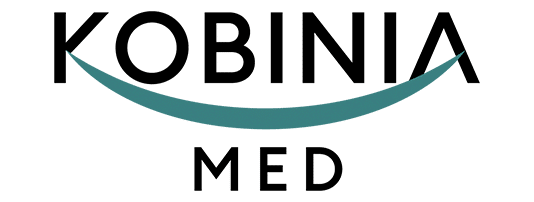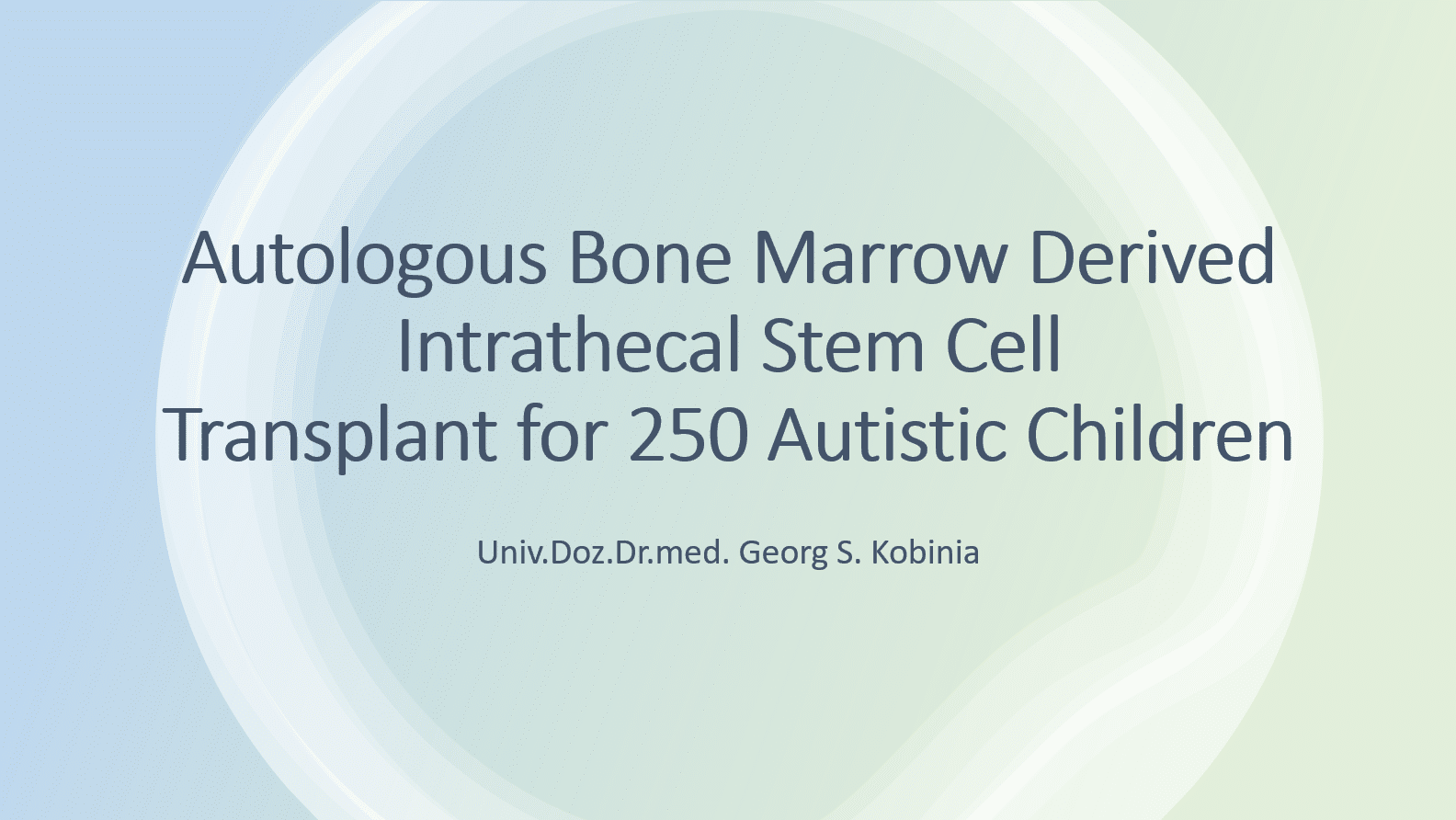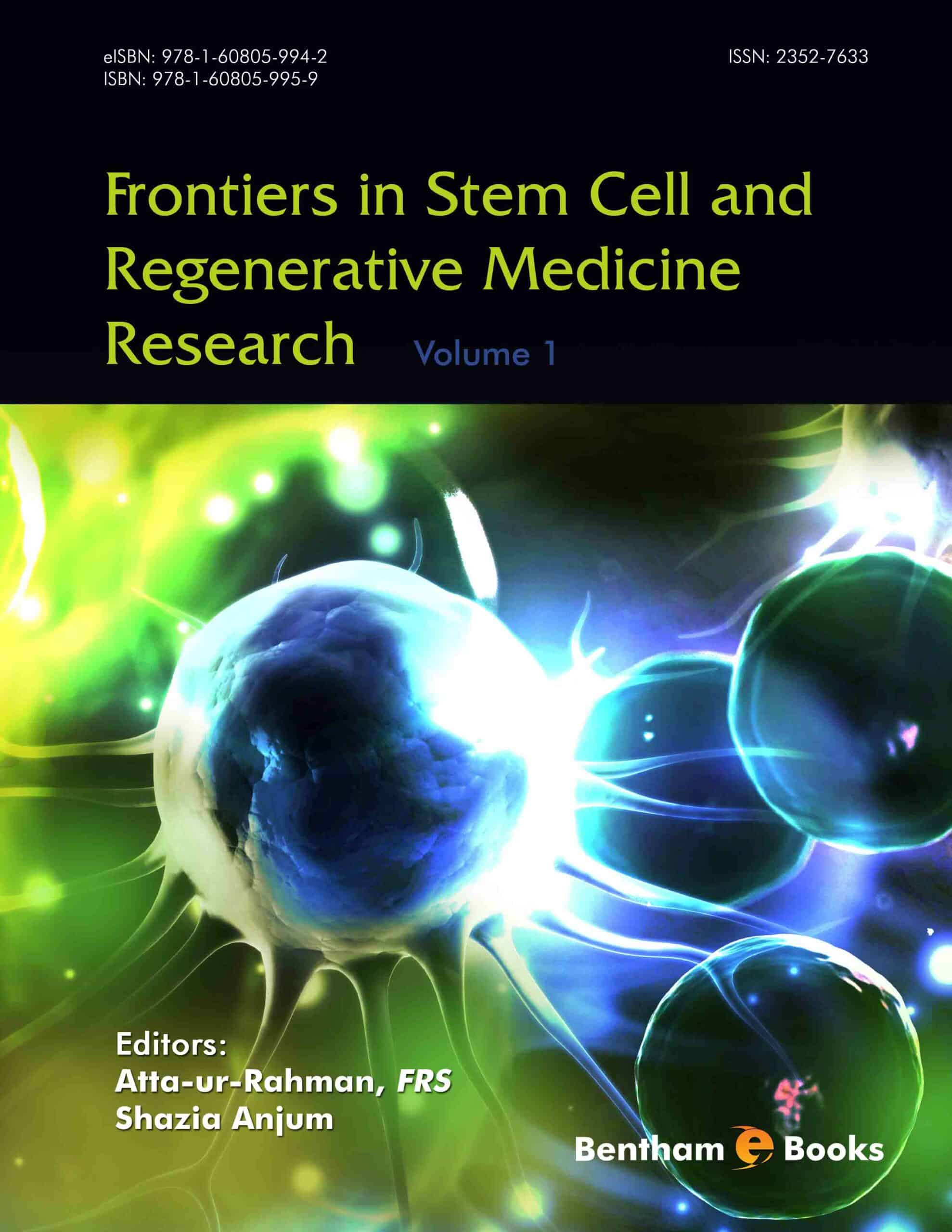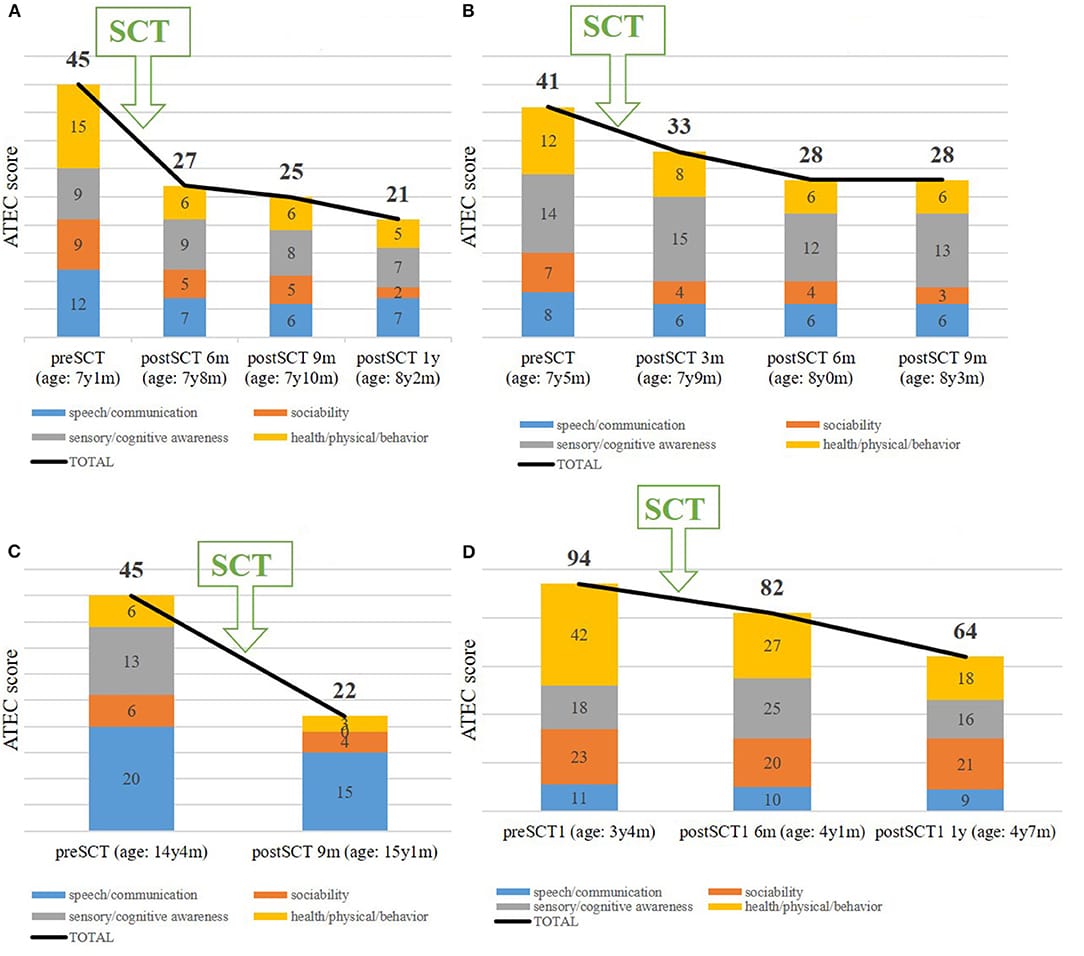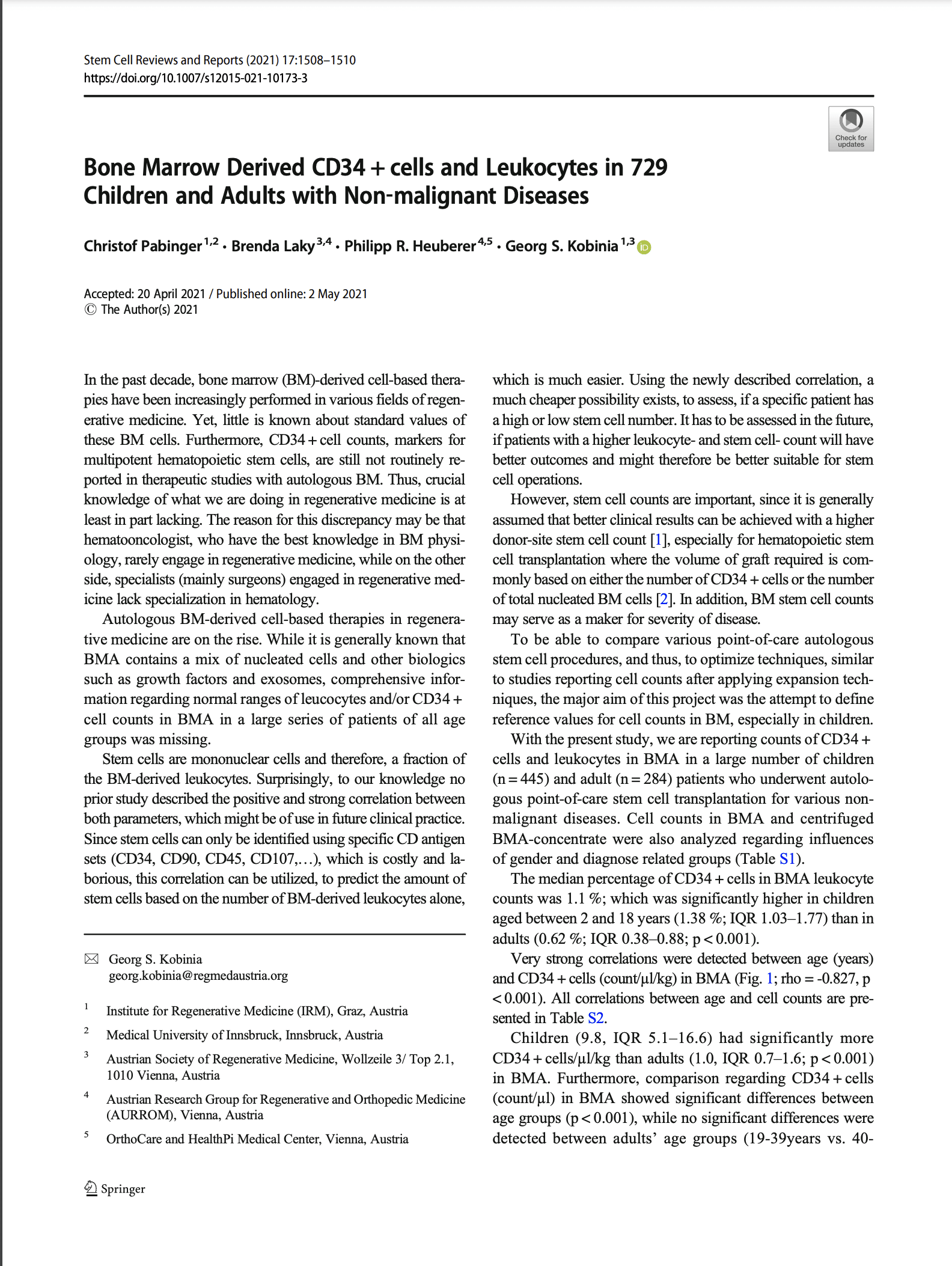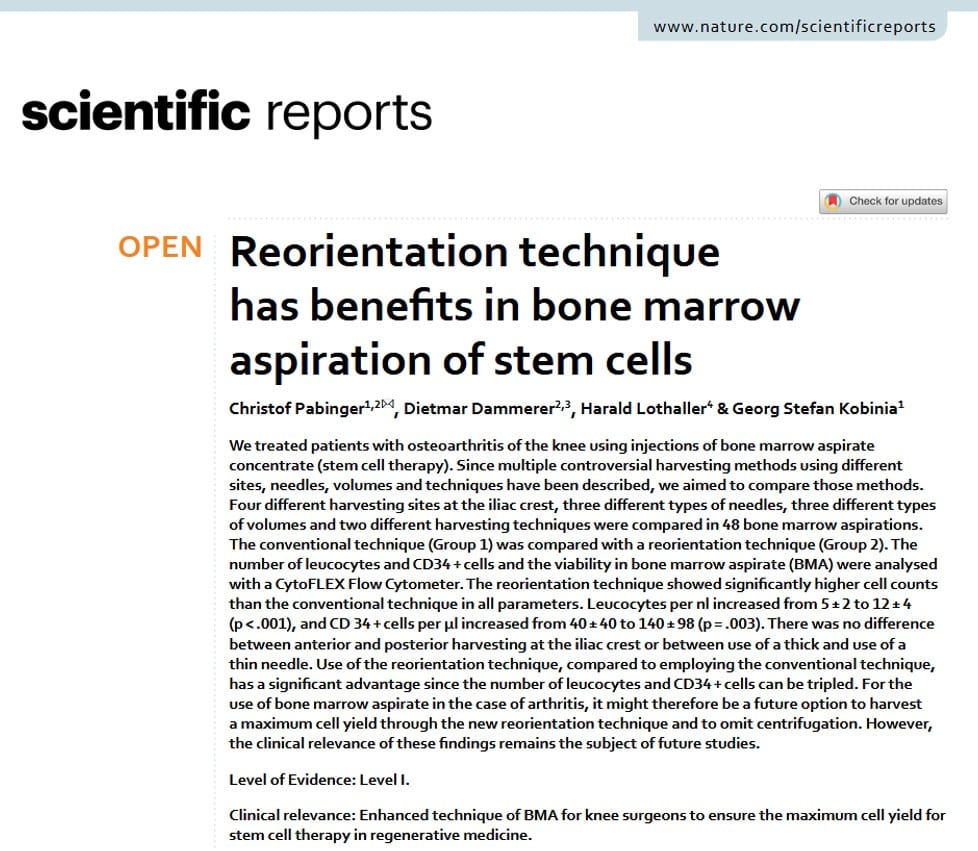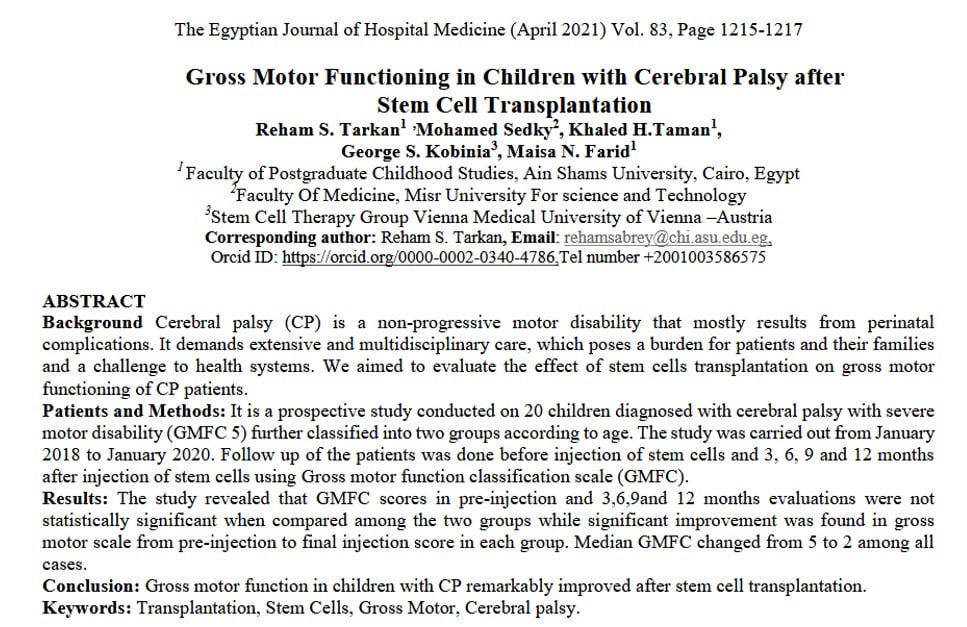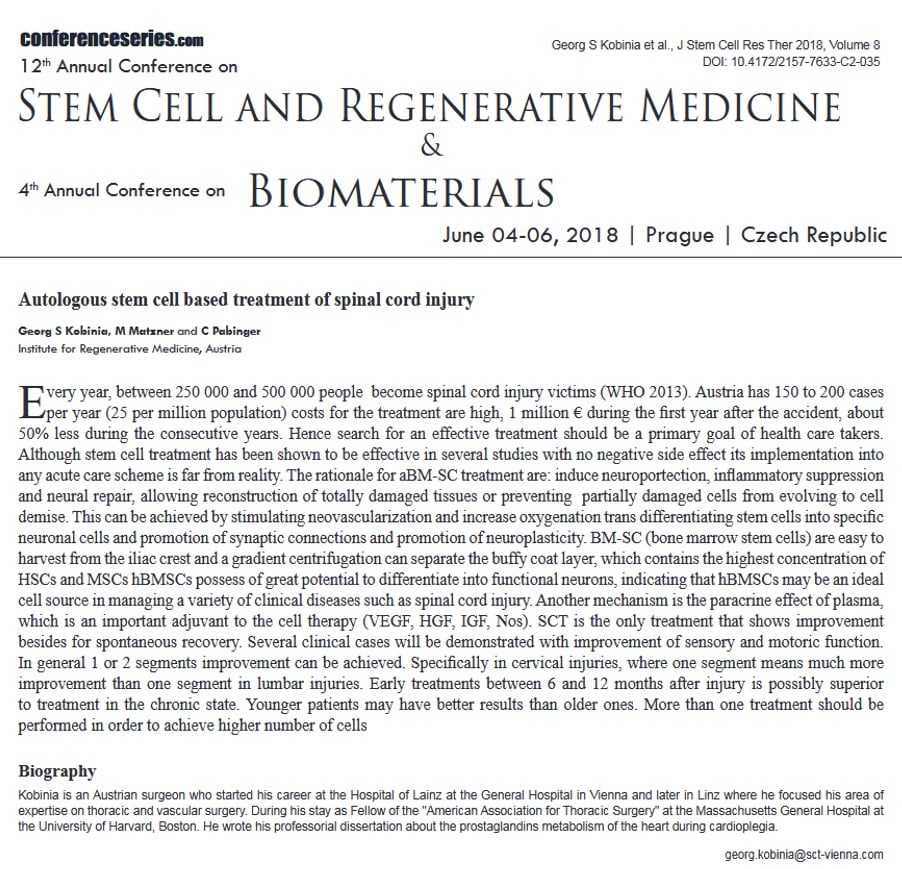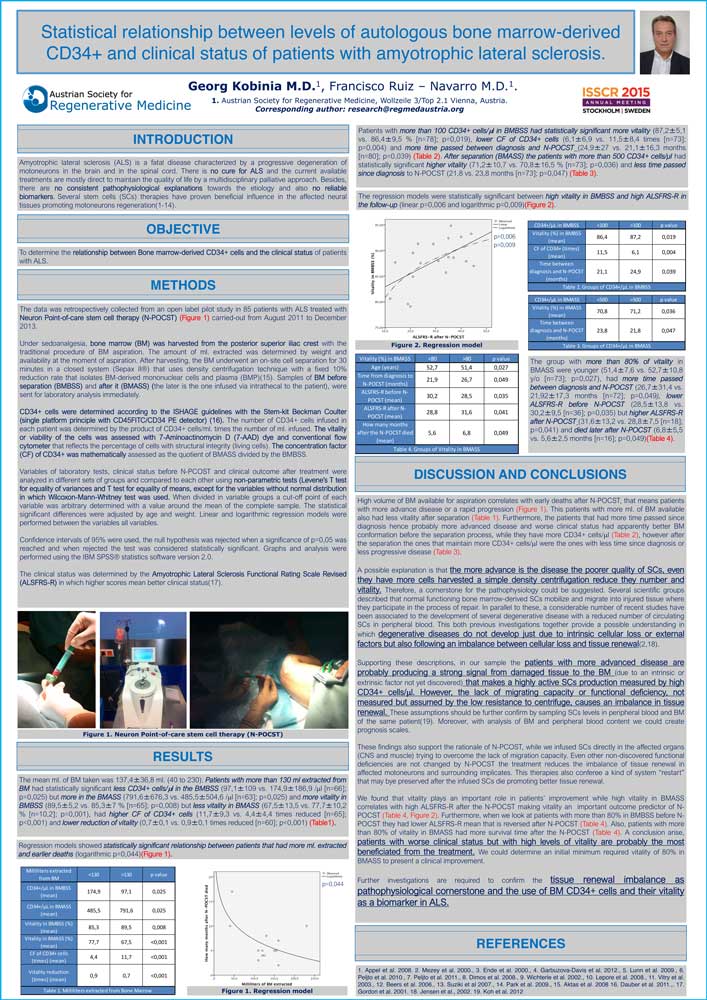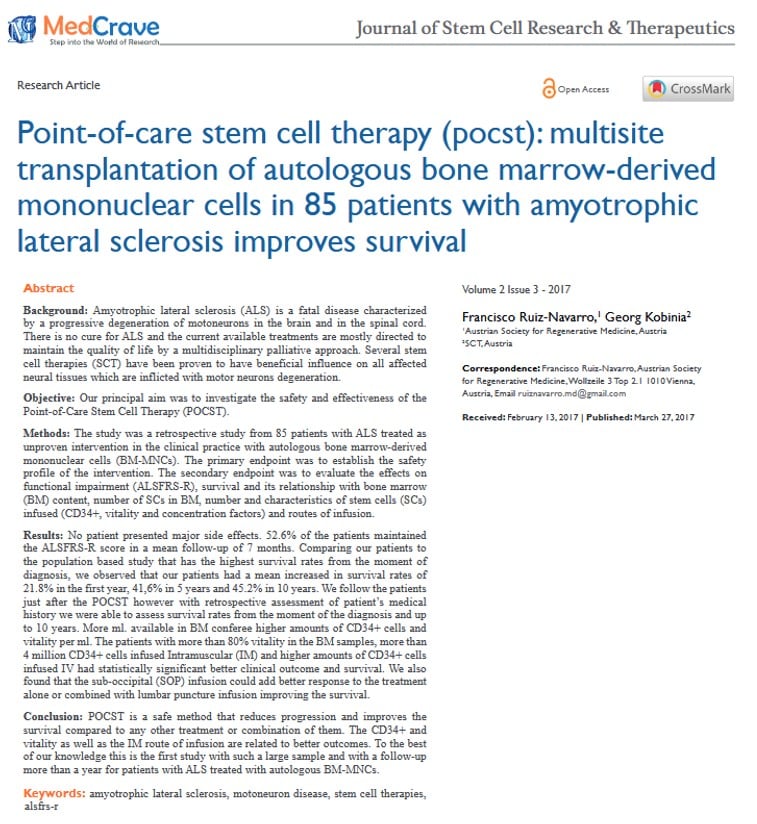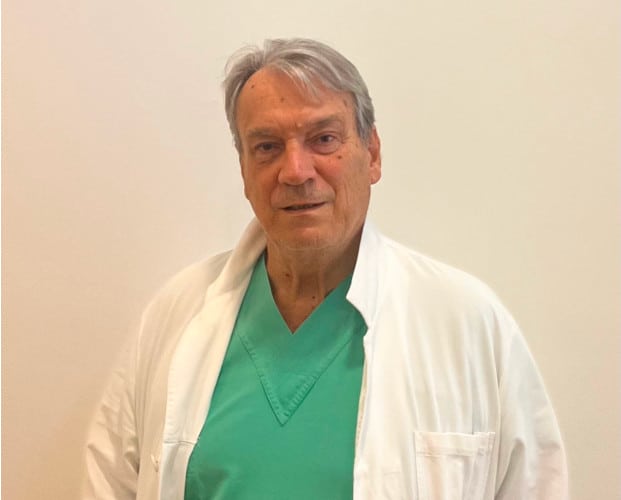INFORMATION ABOUT REGENERATIVE MEDICINE
REGENERATIVE MEDICINE
Regenerative medicine has been offered by a steadily increasing number of institutions and clinics. However, if you are looking for a trustworthy clinic, it is of utmost importance to check.
- how much experience the doctors have with the method and your disease and
- how much scientific work up has been performed on this field.
We have therefore compiled information on our team’s surgical experience as well as our publications and on published literature in the field of regenerative medicine.
Why choose Kobinia-Med?
- Autologous bone marrow derived stem cell transplantation
- Experienced surgical team
- Extensive experience in treating patients with various, specific conditions
- Constant quality assessment
- Ongoing publications in peer-reviewed journals
- Associate Professors as treating doctors with their medical careers at the Medical University of Vienna
- Dedicated team to organise your treatment in Vienna, Austria
- Located right in the middle of Europe
- Only board-certified specialists
- Competitive prices
What is regenerative medicine?
Important definitions regarding regenerative medicine:
Regenerative Medicine
Regenerative medicine is the field of medicine that deals with regrow, repair, or replacement of damaged or diseased human cells, organs, or tissues. Regenerative medicine includes the generation and use of therapeutic stem cells, tissue engineering, or the production of artificial organs.
Stem Cells
Stem cells are essential cell types, which are unspecialized and self-renewable cells. That means that stem cells are able (a) to divide and thus, renew themselves and (b) to develop into specialized cells such has nerve, muscle, skin, or pancreatic cells.
- It can replicate itself (renewal)
- It can give rise to more specialized cells (differentiation).
- Stem cells reside in organs and tissues throughout the body and help replace old, worn or damaged cells. They are the body’s biological repair kit.
- Stem cells can give rise to a wide variety of specialized cells, including heart cells, blood cells, liver cells, and neurons.
Cell therapy
Cell therapy is a therapy in which viable cells (stem cells or non–stem cells) are injected, grafted, or implanted into a patient for medical purposes and in different disease areas.
Single-procedure
In regenerative medicine single-procedure means that stem cell extraction (e.g., from bone marrow), minimal manipulation (e.g., via centrifugation), and application (e.g., via lumbar punction) is performed at the same location and time.
Autologous vs. Allogenic
Allogenic cells are derived from a healthy donor and applied to a patient, while autologous cells (‘auto’ means self) are extracted from and applied to the same patient.
Do you need more basic scientific information?
Why is regenerative medicine so important?
Use of regenerative medicine has several advantages.
- First of all it is green medicine. There is no chemistry involved it uses the body’s own healing properties. This may be the patient’s own cells in autologous stem cell transplant or the cells from another healthy person as in allogenic cell transplant. We currently pollute our environment not only with pesticides, we also pollute our water by producing a huge waste of chemicals due to the incredibly massive use and/or abuse of pharmaceutical drugs. No question, drugs have helped us to fight many diseases successfully. But at the same time, extensive resource waste of pharmaceuticals can have significant adverse repercussions on mother Earth (e.g., wildlife and the ecosystem). Just think of all the estrogen in anti-baby pills that ultimately may reduce the fertility of women and men. There are roughly 1500 drugs available treating disease, however we only process some 15 metabolic pathways to get rid of the metabolites of these drugs.
- Another big advantage of regenerative medicine is that we apply not only one single substance but rather thousands of substances and enzymes with the application of stem cells and bone marrow plasma. By applying autologous stem cells, the diseased body is supplied with much needed interleukins, growth hormones, and cytokines to regenerate.
- Regenerative medicine may come at a much cheaper price when compared to long-time symptomatic pain relieve by drugs with known side effects or more invasive procedures such as open surgery. Injection of stem cells in osteoarthritis of the knee instead of prosthetic knee replacement is a good example.
WHICH NON-MALIGNANT INDICATIONS FOR STEM CELL THERAPY ARE PUBLISHED?
- Autism Spectrum Disorders (ASD)
(autism) AND (stem cell therapy) - Search Results - PubMed (nih.gov) - Cerebral palsy (CP) (cerebral palsy) AND (stem cell therapy) - Search Results - PubMed (nih.gov)
- Amyotrophic lateral sclerosis (ALS) (amyotrophic lateral sclerosis) AND (stem cell therapy) - Search Results - PubMed (nih.gov)
- Covid-19 (covid) AND (stem cell therapy) - Search Results - PubMed (nih.gov)
- Multiple sclerosis (MS) (multiple sclerosis) AND (stem cell therapy) - Search Results - PubMed (nih.gov)
- Spinal cord injury (SCI) (spinal cord injury) AND (stem cell therapy) - Search Results - PubMed (nih.gov)
- Osteoarthritis (OA) (osteoarthritis) AND (stem cell therapy) - Search Results - PubMed (nih.gov)
- Rheumatoid arthritis (RA) (rheumatoid arthritis) AND (stem cell therapy) - Search Results - PubMed (nih.gov)
- Chronic obstructive pulmonary disease (COPD) (chronic obstructive pulmonary disease) AND (stem cell therapy) - Search Results - PubMed (nih.gov)
- Peripheral ischemic/aterial disease (PID/PAD)……. (peripheral ischemic disease) AND (stem cell therapy) - Search Results - PubMed (nih.gov)
Our Publications
Case Report: Autologous Bone Marrow Derived Intrathecal Stem Cell Transplant for Autistic Children - A Report of Four Cases and Literature Review.
Bone Marrow Derived CD34 + cells and Leukocytes in 729 Children and Adults with Non-malignant Diseases.
Statistical relationship between levels of autologous bone marrow-derived CD34+ and clinical status of patients with amyotrophic lateral sclerosis.
Point-of-care stem cell therapy (pocst): multisite transplantation of autologous bone marrow-derived mononuclear cells in 85 patients with amyotrophic lateral sclerosis improves survival
Our Experience
Univ. Doz. Dr. med. Georg S. Kobinia
Surgeon, Senior Physician
Board certified for general surgery
Board certified for cardiac surgery
Board certified for thoracic surgery
Board certified for vascular surgery
Specialist in Regenerative Medicine
Full Bio
